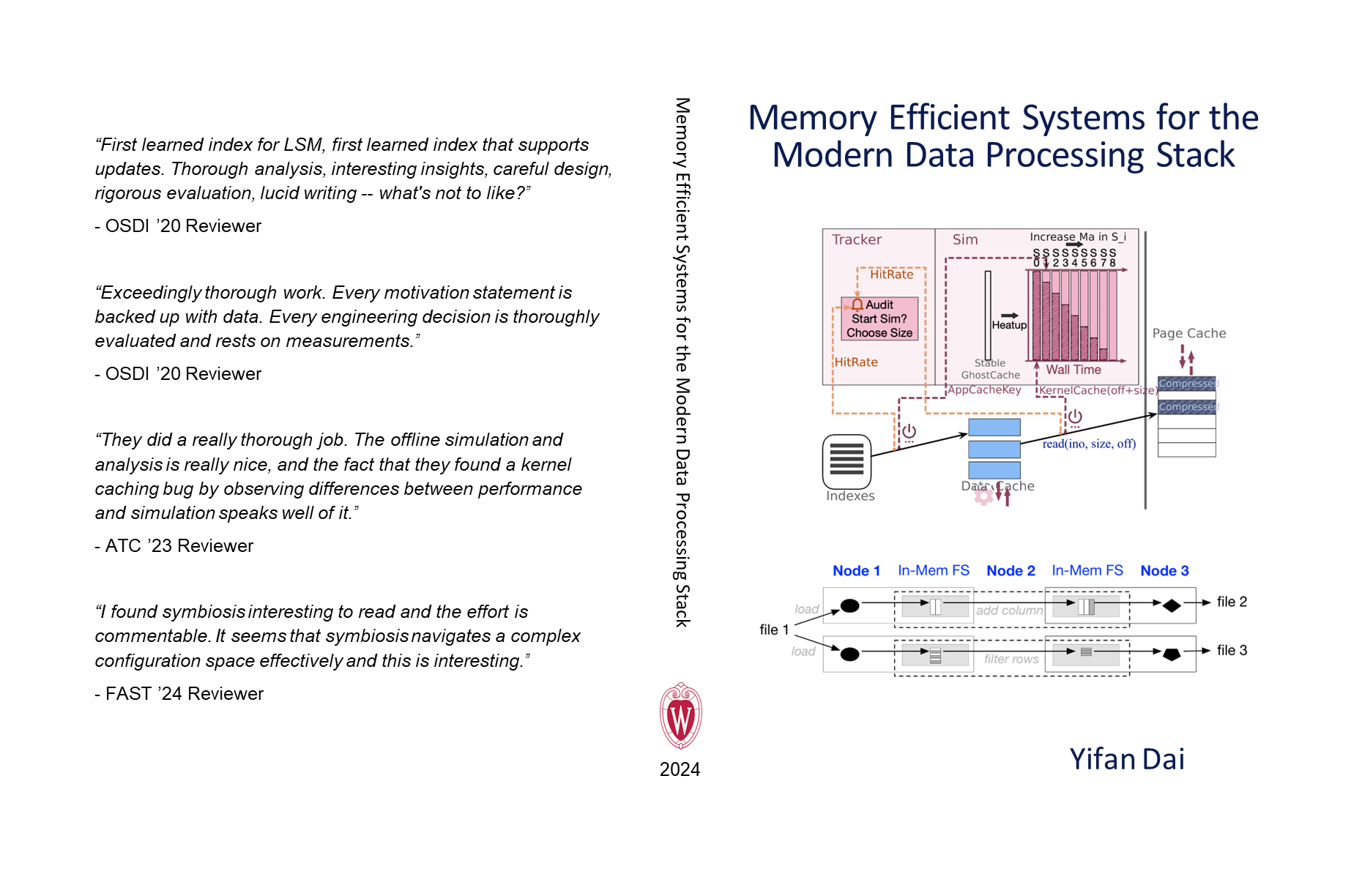Abstract:
The world has witnessed exponential growth of data. People interact with data every day
through social media, e-commerce, and so on.
People have built software stacks to efficiently work with data. A modern data processing
stack includes layers that are responsible for ingesting, storing, transforming, and utilizing
data. With the data becoming larger, the data processing stack requires better memory
efficiency. There has been extensive study from the systems community to optimize each
layer of the stack, but communication between them is often overlooked, leading to hidden
overheads across layers.
In this thesis, we introduce three aspects of study on memory efficiency of the data
processing stack, both on optimizations within a single layer and those across layers. The
first part of the thesis introduces a learned index for Log-structured Merge (LSM) Trees. The
learned index is 0.5x to 0.75x smaller than the original index and improves the in-memory
workload performance by 1.5x on average.
In the second part, we focus on the caching problem between the layer of storage engines
and the layer of the underlying kernel. Both storage engines and the underlying kernel
use data caching and they share the same memory quota, implicitly forming a two-level
cache structure of which storage engines are often unaware. We introduce a framework
that automatically optimizes cache allocation of storage engines by online cache simulation
and dynamically adapts to different workloads. We incorporate our system into 3 popular
key-value storage systems and provide a 1.5x gain on average.
The third part focuses on removing data copying and duplication in data pipelines on a
single machine. Data communication between different nodes in a data pipeline currently
requires full copying even if they are located on the same machine due to limited kernel
support. We build a pipeline execution engine with co-design of new kernel mechanisms
and container runtime. Our new system provides a 2x gain for real-world data pipelines.
We design and implement our solutions into real systems and yield benefits on real data
processing workloads. We believe that our work will inspire the future development of the
data processing stack.
Full Paper:
PDF
BibTeX
Publications
